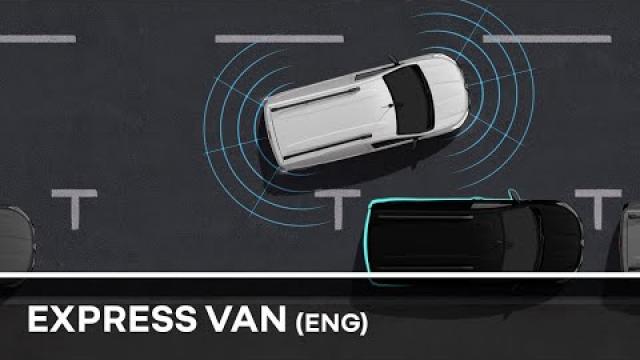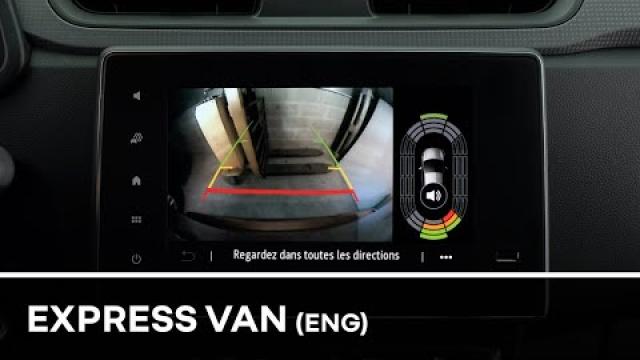REVERSING CAMERA
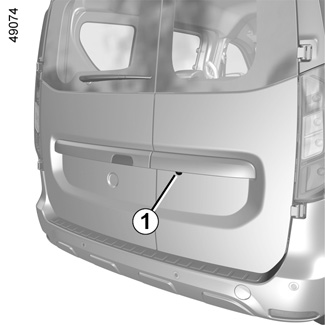
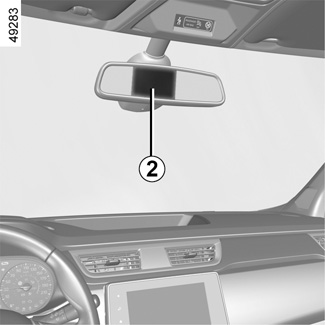
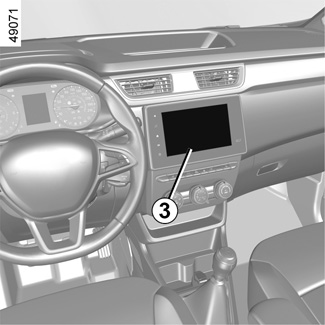
Operation
Moving into reverse gear, the camera 1 located on the rear hinged door provides a view of the area behind the vehicle on the rear view mirror 2 or, depending on the vehicle, on the multimedia screen 3, accompanied by one or two (moving and fixed) guide lines 4 and 5.
Note: depending on the vehicle, certain settings can be adjusted from the multimedia screen 3. Refer to the handbook for the equipment.
This function is an additional aid. It cannot, therefore, under any circumstances replace the vigilance or the responsibility of the driver.
The driver should always be ready for sudden incidents while driving: always ensure that there are no small, narrow moving obstacles (such as a child, animal, pushchair, bicycle, stone, post, etc.) in the blind spot when manoeuvring.
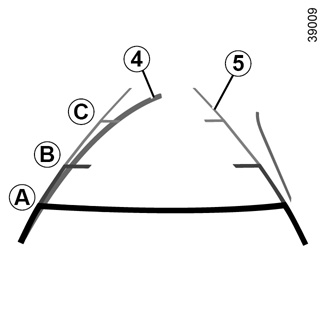
Dynamic gauge 4 (depending on the vehicle)
This is shown in blue on the multimedia screen 3. It indicates the vehicle trajectory according to the position of the steering wheel.
Static guide line 5:
The fixed clearance gauge comprises coloured markers A, B and C, indicating the distance behind the vehicle:
- A (red) approximately 30 centimetres from the vehicle;
- B (yellow) approximately 70 centimetres from the vehicle;
- C (green) approximately 150 centimetres from the vehicle.
This gauge remains fixed and indicates the vehicle trajectory if the wheels are in line with the vehicle.
This system is initially used with the aid of several gauges (mobile for trajectory and fixed for distance). When the red zone is reached, use the bumper image to stop accurately.
Special feature
Ensure that the reversing camera is not obscured (dirt, mud, snow, condensation, etc.).
Operating faults
When reverse gear is engaged, if the system detects an operating fault, a black screen is displayed temporarily on the multimedia screen 3.
This may be caused by a fault affecting the camera or screen (clearness, fixed image, delayed communication etc.).
If the temporary display of the black screen persists, please consult an approved dealer.
The screen shows a reverse image.
The frames are a representation projected on a flat surface. This information is to not be taken into account when superimposed on a vertical object or an object on the ground.
Objects which appear on the edge of the screen may be deformed.
In very bright light (snow, vehicle in sunshine etc.), the camera vision may be adversely affected.
If the rear doors are open or poorly closed, the message “BOOT OPEN” appears and, depending on the vehicle, the camera display disappears.
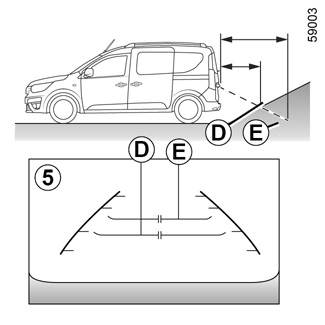
Difference between the estimated distance and actual distance
Reversing towards a steep uphill slope
The fixed guidelines 5 show the distances as closer than they actually are.
The objects shown on the screen are actually further away on the slope.
For example, if the screen displays an object at D, the actual distance of the object is at E.
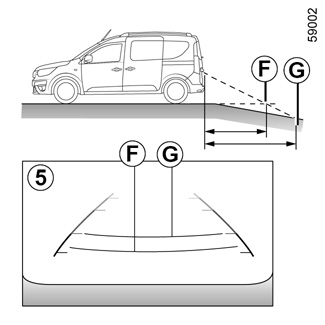
Reversing towards a steep downhill slope
The fixed guidelines 5 show the distances as further than they actually are.
Therefore, the objects shown on the screen are actually closer on the slope.
For example, if the screen displays an object at G, the actual distance of the object is at F.
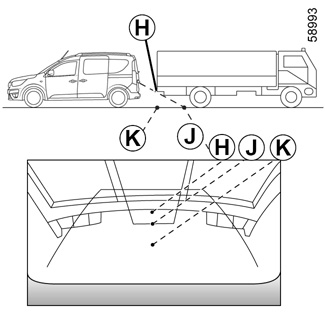
Reversing towards a protruding object
Position H seems further than position J on the screen. However, position H is at the same distance as position K.
The trajectory indicated by the fixed and mobile guidelines do not take into account the height of the object. So there is a risk that the vehicle may collide with the object when reversing towards position K.
